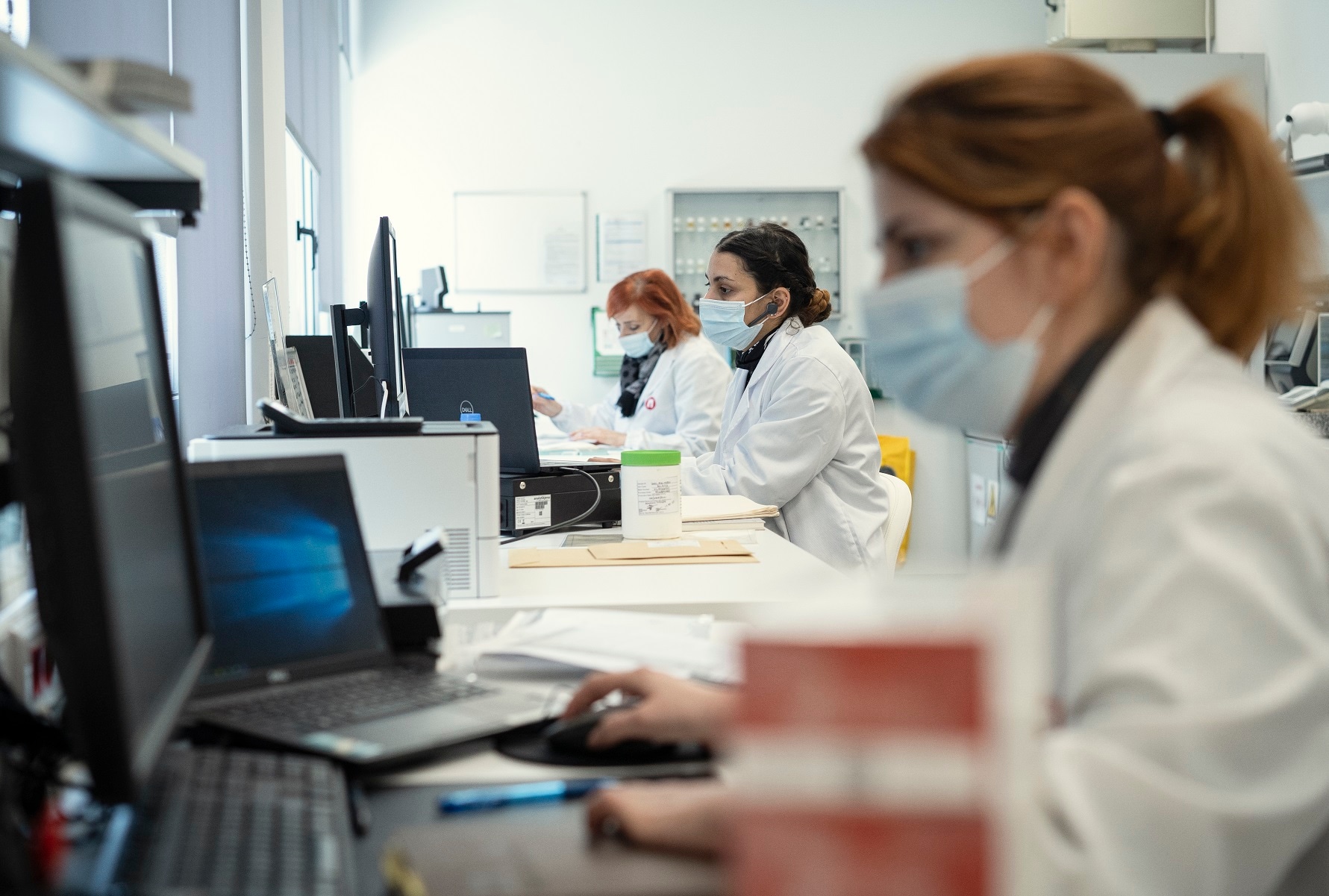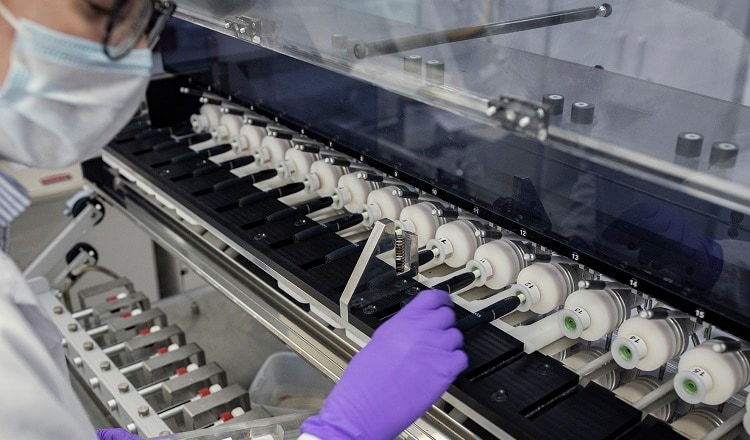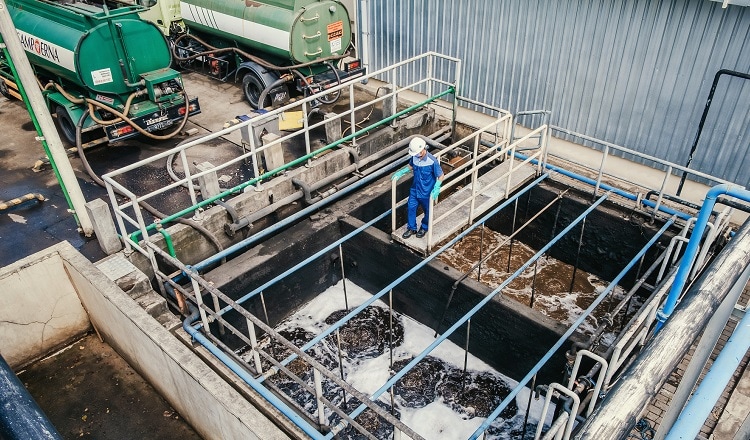Conducting our research and development (R&D) openly and transparently is of the utmost importance. When coupled with scientific integrity and rigor, transparency helps address skepticism and mistrust, and fosters the sort of collaboration and cooperation needed to drive positive societal change. Evidence resulting from robust scientific assessments advances the debate on public health and tobacco harm reduction, to the benefit of adult smokers.
At PMI, R&D is the catalyst for our business transformation. The rigor with which we conduct our R&D—and the openness with which we share our methodologies and findings—builds confidence in our science among the scientific community, regulators, and our consumers, protects our company from reputational risk, and, most importantly, allows us to commercialize our smoke-free products around the world.
Our approach
Our R&D work is focused on developing and scientifically substantiating smoke-free alternatives to cigarettes for adults who would otherwise continue to smoke. Eliminating combustion reduces users’ levels of exposure to harmful and potentially harmful chemicals compared to smoking. In conducting R&D, we strive for excellence in line with international standards—with zero tolerance for compromise in either our scientific methods or their execution.
Decision-making on R&D strategy and direction is handled by specific committees at the product assessment, project design, and Board levels. Among other responsibilities, the Board’s Product Innovation and Regulatory Affairs Committee monitors the company’s internal scientific research, including efforts to substantiate the risk-reduction potential of our smoke-free products. Our Vectura Fertin Pharma President and Chief Life Sciences Officer holds overall responsibility for our R&D strategy and plans, while accountability for scientific excellence and transparency rests with our Chief Scientific Officer.
We regularly interact with an extensive network of stakeholders, including long-term study partners, research partners, production site personnel, universities, suppliers, consumers, and regulators.
We adhere to high scientific standards, and our research is aligned with the U.S. Food and Drug Administration’s draft guidance on modified risk tobacco products (2012).
In conducting our studies, we aim to align with available international standards, such as applicable ISO standards, OECD’s Principles of Good Laboratory Practice, and Good Epidemiological Practices. Importantly, all our clinical studies are conducted in accordance with the Declaration of Helsinki and the principles of Good Clinical Practice. These standards aim to ensure the quality and integrity of nonclinical and clinical studies.
Sharing our methods and findings
We recognize that scientific research from tobacco companies may be met with skepticism. Sharing our science and listening to feedback are critical to encouraging debate with experts and the broader public. We produce a regular briefing through our Scientific Update publication, which complements what we share throughout the year via articles in peer-reviewed journals, presentations at conferences, and our PMI Science website. Since 2008, we have published more than 452 papers on smoke-free products in peer-reviewed publications. In 2021, we continued our Open Science conference series, hosting webinars and making the recordings available on PMIscience.com. In addition, our scientists continued to present their findings at conferences and virtual events throughout the year in the fields of toxicology, aerosol engineering, and respiratory drug delivery.
By sharing our scientific data and papers, we allow the research community and broader public to gain an in-depth perspective into how PMI conducts R&D and our research findings. We welcome objective studies by external stakeholders that seek to contribute to a science-based debate on the important societal question of tobacco harm reduction.
INTERVALS
To address concerns over the reproducibility of research results, we created a platform called INTERVALS specifically for tobacco harm reduction science. INTERVALS is meant to be a comprehensive reduced-risk product research repository with data from a variety of third-party sources, in addition to PMI’s research data.
By promoting the sharing of protocols, tools, and data, this platform enables independent data reanalysis and collaboration. It was designed to allow all relevant stakeholders to share and explore toxicity assessment data produced in relation to product alternatives to cigarettes. As of the end of 2021, a total of 87 studies, 132 protocols, and 676 data sets had been published on INTERVALS since 2018.
PMI’s Postdoctoral Fellowship Program
Thirteen candidates have taken part in the two-year Postdoctoral Fellowship Program at PMI Science since its inception in 2017, covering topics ranging from genome engineering to human behavioral psychology. The program provides early-career scientists with a toehold in both academia and industry. Our R&D center in Switzerland—called the Cube—houses the fellows, who are provided with the tools, technical skills, and methodologies they need to reach their research potential. At the end of the two-year program in 2019 and 2021, both waves of talented scientists enrolled in the program had made significant contributions to PMI’s scientific research and innovation.
Animal testing
Animal studies allow us to confirm in vivo what pharmacology and toxicology studies show in vitro. We use human-derived cells in vitro, but the animal studies in vivo allow us to assess scientifically the consistency of our findings.
Despite toxicology standards accepting the use of rodents, we are working to replace animal testing with non animal-based testing approaches to the extent possible. We apply the “3R” guidelines: replacement, reduction, and refinement (see our Standards for Animal Testing).
We hope that in time we will be able to replace much or all animal testing with alternative methods. Our animal welfare committee, composed of veterinary and scientific PMI professionals with ample experience in animal testing, is responsible for reviewing protocols and examining them for compliance with scientific and animal welfare criteria. Our in vivo facility is accredited by the Association for Assessment and Accreditation of Laboratory Animal Care (AAALAC) International, which sets the gold standard in animal welfare for the use of animals in scientific research.

Responsible R&D—topic overview
read moreThis online content about our Integrated Report should be read in conjunction with PMI’s 2021 Integrated Report. The information and data presented here cover the 2021 calendar year or reflect status at December 31, 2021, worldwide, unless otherwise indicated. Where not specified, data come from PMI estimates. Please also refer to 'This report at a glance' on page 5 of the 2021 Integrated Report for more information. Aspirational targets and goals do not constitute financial projections, and achievement of future results is subject to risks, uncertainties and inaccurate assumptions, as outlined in our forward-looking and cautionary statements on page 252. In the 2021 Integrated Report and in related communications, the terms “materiality,” “material,” and similar terms, when used in the context of economic, environmental, and social topics, are defined in the referenced sustainability standards and are not meant to correspond to the concept of materiality under the U.S. securities laws and/or disclosures required by the U.S. Securities and Exchange Commission.



